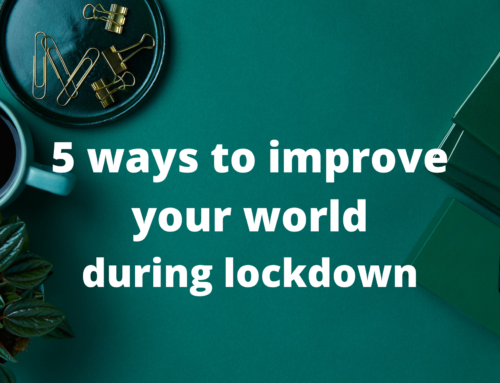We are into the final stretch in our #40TipsForParents series as we look at the next five tips aimed at helping parents:
40 Tips for Parents: Tip #31
[i realise there are families in which this particular tip does not apply and want to take a moment to Shoutout to all the women and men who might be doing this parenting thing by themselves for whatever reason. If parenting is one of the hardest things to do well ever – and i think it is – then doing it by yourself must be a thousand times that. For you, i would suggest the bonus thought that Community is Key!]
Give your marriage good attention.
This tip was encouraged by Heidi Segal who wrote:
‘Prioritise your partner over your kids. Role-model all of the above. Stop teaching them to be good adults tomorrow – rather, let them be great kids today.’
And also by Marcia Motlanthe:
‘Heidi Segal, I like this. I would add something along the lines of: invest in your marriage. Let your kids see you loving your spouse & speaking well of them.’
If you are focusing on your children at the expense of your marriage then things will go pear-shaped quickly, which is a bad thing, ESPECIALLY if you have negative feelings towards the shape of pears.
But when you focus on doing marriage well then you are modelling something that will both directly and indirectly speak to your children. And a strong partnership of parents will generally lead to healthier discipline, boundaries, shared values and so on. Unhealthy parents help to create an environment that is nnot conducive to thriving children.
So a sub-tip of Tip #31 is Go for Marriage Counselling as a gift to your children. Whether or not you think you need it. It is mindblowing to think that a lot of people go to marriage counselling before they get married and then it’s like “Off you go, good luck!” once you are married and have to figure things out for yourselves.
No, you have blindspots and you might need help to fight/argue well, to communicate more effectively and to deal with the emotions that having children may bring. It is the best gift to yourselves and your children to invest some money into your marriage and family by finding someone well-recommended to go and see.
[Not everyone can afford counselling and so maybe one of the best gifts you can give [if you are someone who can] is to pay for a few sessions of counselling for a married couple you know.]
Give your marriage good attention.
#40TipsForParents
= = = = = = = = = = =
40 Tips for Parents: Tip #32
Invite your children to express their feelings.
This one came via a message from Jordan Collins:
‘Maybe I missed it but… something along the lines of “let your kids know that feelings are good and expressing them is important. We have to validate their feelings in order for them to deal with them.’
This one probably isn’t about endorsing tantrums in supermarkets. Good luck with that! But more about being in touch with their emotions as well as giving them permission to lean into their emotions, rather than cutting them off.
i’m not sure if this applies to children in giggle fits on holiday road trips. i remember many times my sister and i would start laughing for some random reason and then we couldn’t stop and at some point our parents would shout at us for laughing because “it would inevitably end in tears” or something like that – which was a prophetic call because now you just made us cry or sad or something – for laughing? i never did get that one.
But probably is more closely connected to crying, and especially for young boys who are told crying makes them weak and then they grow up into men who don’t cry ‘because crying is weak’ and generally are not in touch with their emotions because they were suppressed so much as children which gives rise [or at the very least doesn’t help] to a whole lot of grown men issues in the world.
i think Jordan nailed it: “Let your kids know that feelings are good and expressing them is important. We have to validate their feelings in order for them to deal with them.”
Only thing i would add which i think his comment suggests is simply discussing feelings with children when they exhibit them. If it is anger or extreme tears then it may be more helpful discussing it later once they are more able to engage. Ask them what was going on and let them find the words to describe how they were feeling and why. It is also healthy to take some opportunities to explain why you were angry or sad or excited on occasion.
Invite your children to express their feelings.
Michelle Edwards: And keep in mind that many of us adults are very uncomfortable feeling our feelings as our parents could not tolerate them, we were told to stop crying or were punished for showing anger etc. If we don’t learn to truly be ok with feelings, our children’s expression of intense emotions will be threatening to us and we will show this by trying to distract them or tell them they’re ok or trying to pacify the situation. How much of parenting is self work, right?
#40TipsForParents
= = = = = = = = = =
40 Tips for Parents: Tip #33
Listen to them when they talk to you.
Sho, how did this one take so long. This one comes via Tony Tatamawele Nomfusi French.
This especially comes in to play when a child says that they have been hurt or violated in any way, no matter who they are saying it about. Take them seriously, follow it up, get the proper help, and if you feel out of your depth then talk to someone who can help you make the right decisions. But don’t ignore or deflect or dismiss any comment like this. We have to start at the point of believing them and take it from there.
But this should also extend past those hopefully more rare situations to any time your child is speaking to you.
When possible, stop what you’re doing, look them directly in the eyes and listen to them. Obviously this is not always possible and some life stages of children, and some particular children, involve a lot more talking. But at the very least let it be a part of how you relate to them. That they know they are a priority for you at least some point of every day.
Be careful of falling into a routine of giving them half attention. So the impression of listening, rather than actual listening. Many of us do this with adults in certain situations during the day but it can become quite easy to do with children when they demand so much attention. So remind yourself to really be intentional about slowing down, pausing or even stopping and giving them your attention. Really hearing what they have to say and then responding genuinely to it.
Being listened to is a huge indicator of being loved. Your children need to know that you love them in this way.
Listen to them when they talk to you.
#40TipsForParents
= = = = = = = = = =
40 Tips for Parents: Tip #34
Be present.
We have spoken of prioritising your children [Tip 2] and reading to/with them [Tip 18] and eating with them and exploring questions together [Tip 26 + 27] but this goes a little bit further than that. i will let Cristi Little explain:
‘I think “absent parents” needs to be explained some more, because most people seem to think it only refers to a physical absence. Neglect can happen with your parents in the same room. It’s a lack of concern or simple ignorance. Its the feeling that kids will figure everything by themselves and I as a parent never need to intervene (provide guidance, set safe boundaries etc). Its allowing bad things to happen and then blaming the child for not knowing how to navigate the situation themselves. Parenting is serious work, and you can’t take a break from it because difficult things are happening in your life.’
Sho, there is a lot in there and i imagine it will be helpful as a parent to process all of those things in the context of your family life. How present you are with each child will also be somewhat child-dependent. Some children appreciate their space more and it can be harder to step away a little bit, while others prefer you right up close and involved. While there may be moment for each child to have you doing the opposite of their preference because it is good for them.
This definitely feels like something that can be worked out in community. So if you are a two-person household rely on your spouse to act as a mirror and a sounding board and do the same for them. In a single parent family it might be grandparents or friends who you invite to coach you on how to be present well.
This is not an encouragement to hover and be in their space the whole time. But figuring out what positive present-ness means for each child, this can be a way of showing them you love them and care about their well-being.
Be present.
Cristi Little:
I am definitely not advocating helicopter parenting either. There are many things children are able to learn through discovery, and figuring things out for oneself is vital to build the confidence and tools to tackle future challenges.
But be present and wary enough to notice when your child is not able to figure something out on their own. We know that very young children cant cross a busy road safely, and so we intervene and teach road safety and help them cross the road when they are younger. Expecting them to magically figure out road safety would be obvious negligence.
A more subtle example could be how one intervenes in sibling relationships. For most people, the first peer relationship we ever have is with our sibling, so it is an important one to get right. Sometimes, siblings figure it out over time and can become the closest of friends. Other times, siblings grow apart because they never figured out how to see past their differences. If your kids keep butting heads and are not able to resolve their problems in a healthy way, step in and teach them how. Listen to each child’s experience and empathize. Help them see the problem from the sibling’s point of view. Then help them negotiate a solution where both siblings’ needs are validated.
Whatever skills in empathy and negotiation you pass on to your children will carry into their future relationships.
S’thabiso Nkosiyalonda Ngomusa Khuluse:
Well Brett imma chip in from a children prospective although i’m no parent. I am the in need space please do not hover over me child. My parental presence is be there if i ask please help. But my big sister and baby sister were more i need you to hover over me in order feel your presence. I guess my single parent raising us preferred they kinda of presence over mine. I always got into trouble in primary and all through till now with our mother because she couldn’t reconcile with my present parent needs in comparison toy siblings. So i agree with the tip. Each child is different and parents should try feed off the need of each child and not try enforce the same presence on all the same when in fact the children aren’t the same. I feel my mothers hovering was what my sisters wanted and loved. I don’t like it at all and i was always bullied into that kinda presence from her parenting. It worked out cause i was always submissive by choice toward her. I’m not sure how it would have worked out had i been a real stubborn rebel like my cousins. Very important for parents to learn each child’s currency and presence needs.
#40TipsForParents
= = = = = = = = = =
40 Tips for Parents: Tip #35
Be sex positive.
This tip came from Tamsyn Elaine Allison and is worth giving some thought to.
This builds somewhat on Tip #4 [Explain things to your children] and Tip #14 [Embrace the difficult questions] as well as Tip #11 [Talk to your children about the difficult things first] but also takes it further.
In many families sex is seen as a bad or dirty thing, as is the naked human body and so for many children your body becomes something to be ashamed of. As does sex. Until one day when you’re married [in my case] and then suddenly have to switch mindsets and now sex is good and the body is good.
There is a very helpful article which i found titled – 9 Ways to be a Sex-Positive Parent Without Making Things Weird:
This includes points like ‘Body positivity is a good place to start’ so modelling embracing your body in front of your children instead of complaining that you are too fat or too whatever.
Another one is to ‘Kiss your partner in front of your kids.’ i’m guessing it is not talking about a seven minute gotta-come-up-for-air smoochfest, but just letting your children be a witness to something that is a normal and beautiful part of expressing your love as parents.
One more is ‘Using the right names for body parts’ which also adds to the idea of children not being embarrassed by words such as ‘penis’ and ‘vagina’. Although i realise for a number of adults reading this, probably because of your background, you might first need to get over being embarrassed by them!
Go and read the rest over here:
https://www.womenshealthmag.com/life/a19954402/how-to-talk-about-sex-in-front-of-kids/
Sex, in the right place and time is a great and beautiful thing and so let’s not give children mixed messages by villifying it in an attempt to keep them away from it.
Be sex positive.
#40TipsForParents
= = = = = = = = = = =
[To return to the start of this series and catch up on any tips you may have missed, click here]




![But what can I do about race? [Ideas 1-5]](https://brettfish.co.za/wp-content/uploads/2018/08/cb-500x383.gif)


Leave a Reply